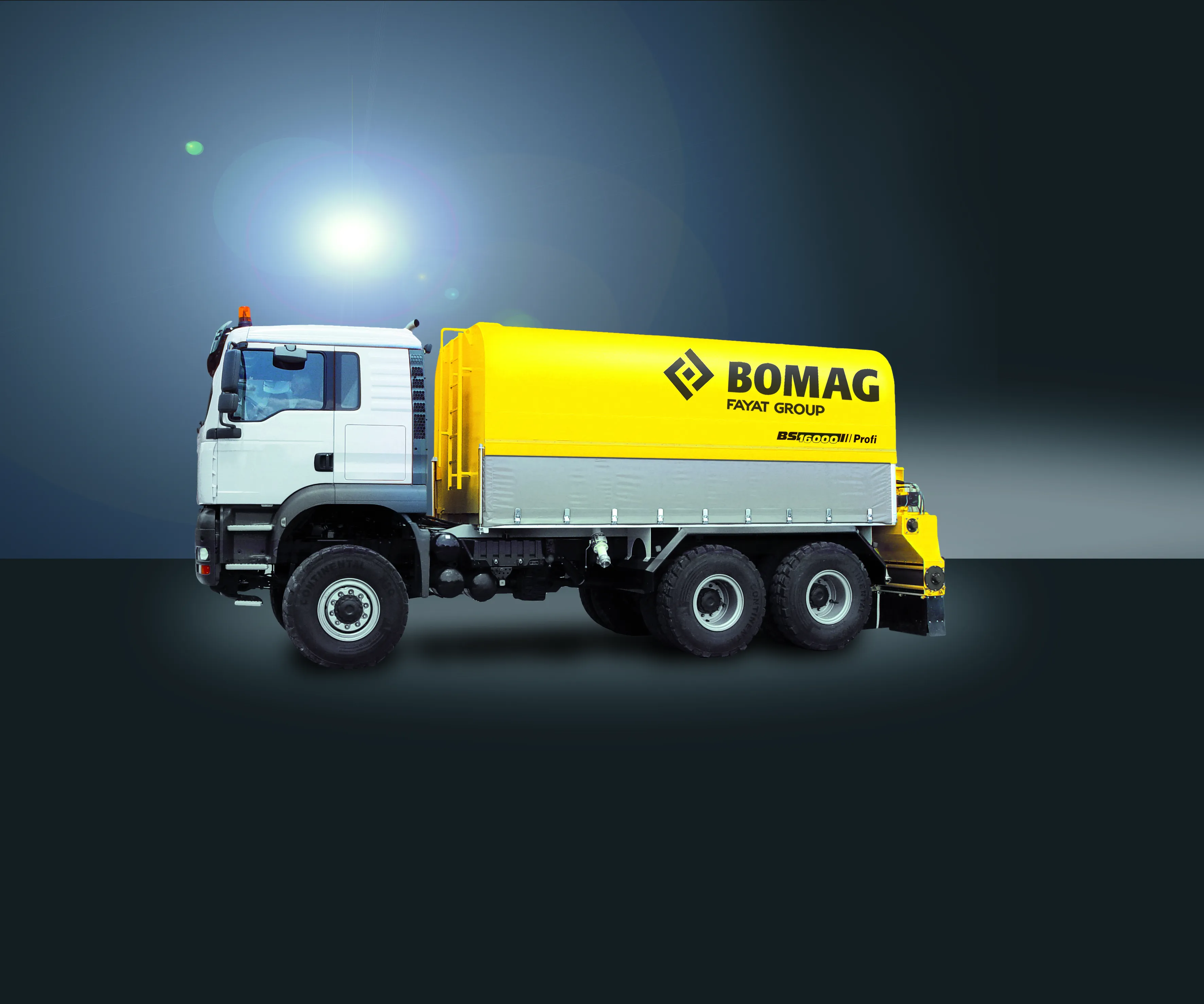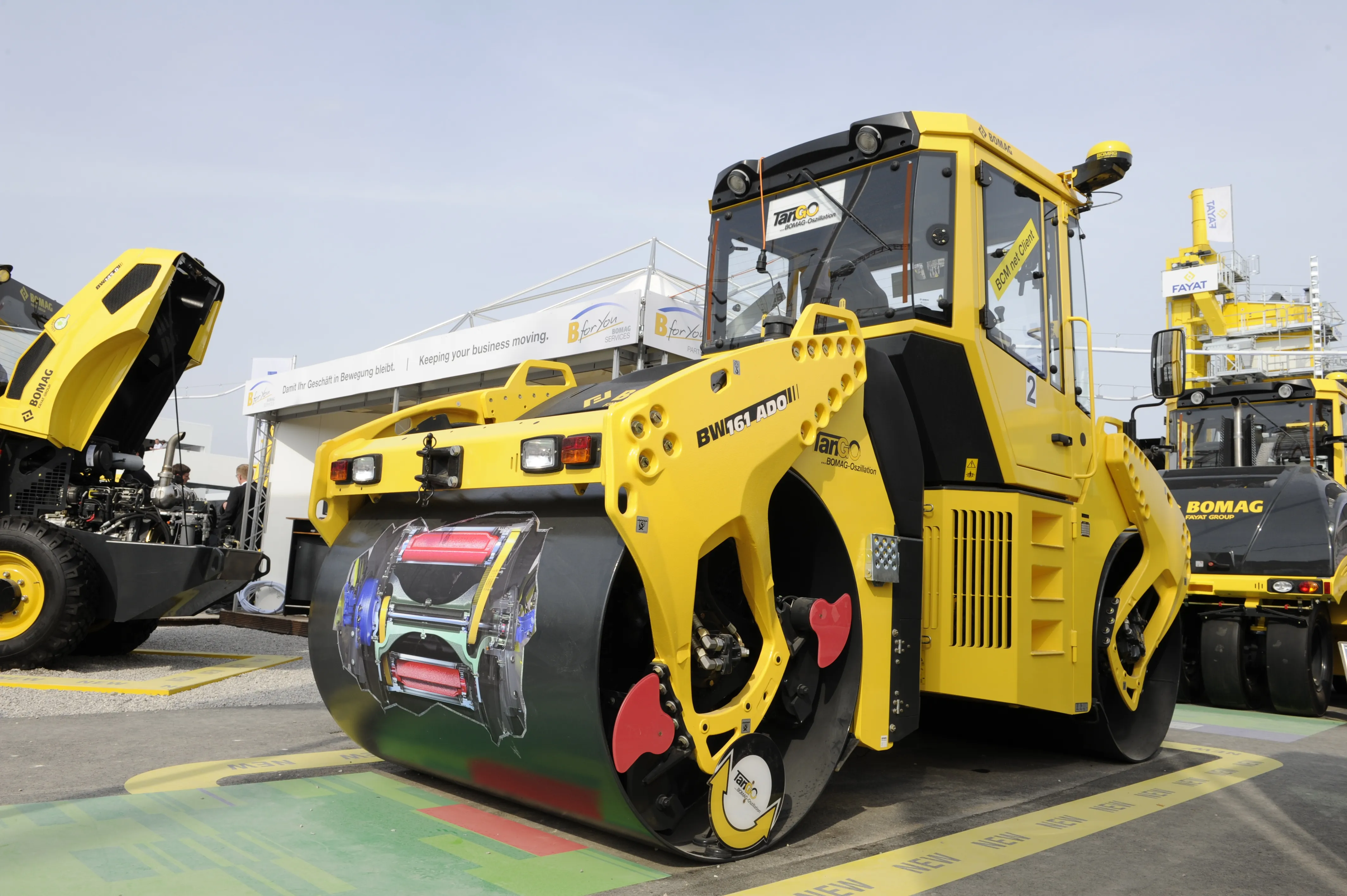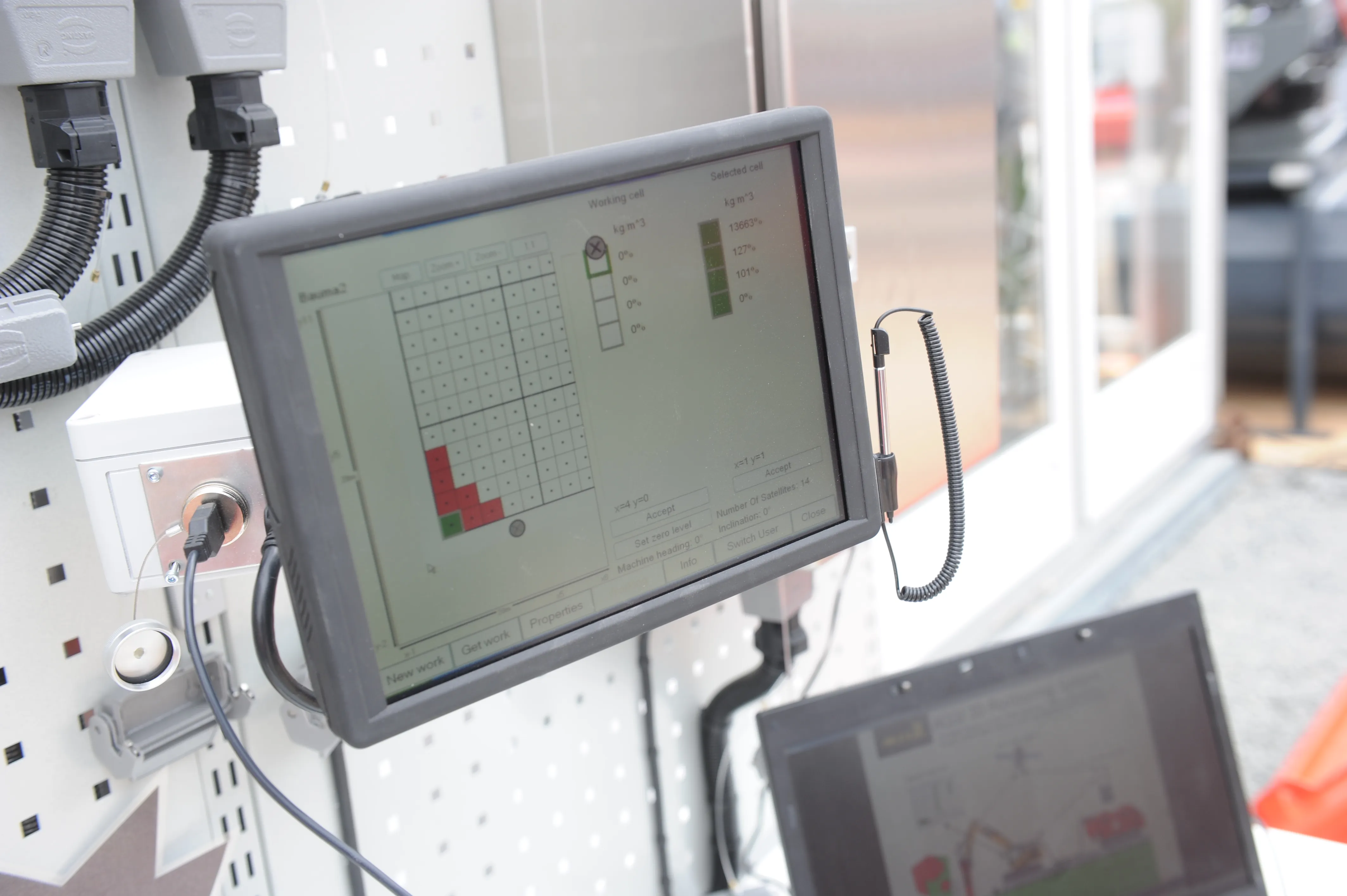BOMAG’s advanced new additive spreader is said to offer increased metering accuracy and performance over earlier generation machines. The truck-mounted BS 16000 PROFI series features a sophisticated metering computer that allows more precise spreading of powdered binders, helping boost process quality. This truck-mounted spreader offers a capacity of 16m³ and features a fully automatic metering control system. The electronically controlled rotary gate valves of the BS 16000 PROFI automatically adjust the sp
February 11, 2013
Read time: 2 mins

The standard BOMAG spreaders come with high precision metering feeders. While the basic spreading system is equipped with one metering feeder, the PROFI spreading system has three computer-controlled feeders; this allows the target values to be set and the quantity to be adjusted smoothly from the operator's seat. The trailer is available as a basic model or fully automatic PROFI version. However, lorry-mounted versions are only available in the PROFI design. The working widths are 2.4m or 2.8m for trailers, and 2.4m for the lorry mounted BS 16000 PROFI. The BS 16000 PROFI is suited to duties in soil stabilisation and cold recycling operations, for modifying non-load-bearing soils into stable foundations and for reconstructing roads. BOMAG offers three spreader models: the 3.2m³ attachment spreader; the 12m³ towed spreader; the 16m³ mounted spreader.
Stand: F10.1008/1
%$Linker:







